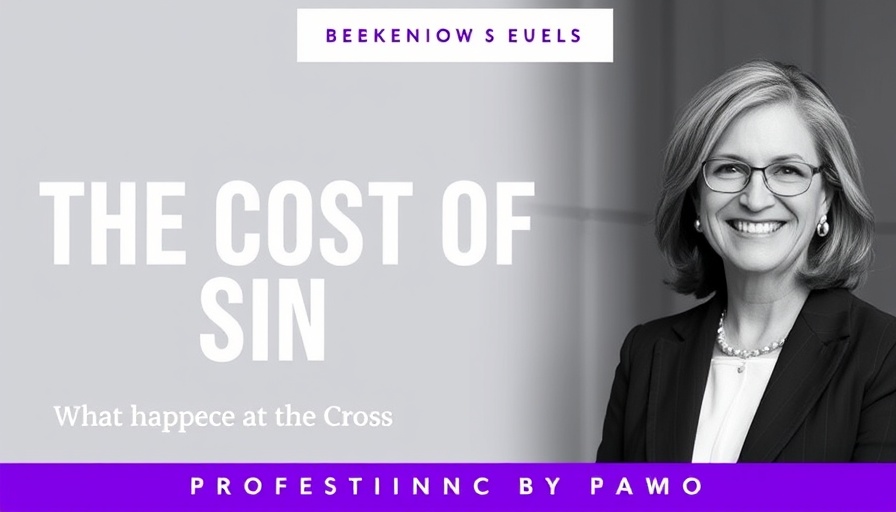
The Significance of Addressing Domestic Violence in Faith Communities
In a bold move, the Sabbath School Quarterly has issued a rare disclaimer denouncing domestic violence, signaling a significant shift in the Adventist community's approach to such pressing social issues. This unprecedented acknowledgment doesn’t merely reflect a response to external societal pressures, but rather signifies a deeper introspection about the values within the faith community. It demonstrates a commitment to fostering a safe and supportive environment for all members, particularly those who may be suffering in silence.
Why This Disclaimer Matters
Historically, religious institutions have encountered challenges when addressing sensitive issues such as domestic violence. Many congregations often grapple with the belief that discussing such topics may compromise their values or provoke discomfort among their members. However, this new disclaimer presents a progressive approach, encouraging open discussions about the complexities and realities surrounding domestic violence. By doing so, the church underscores the importance of human dignity and the obligation to protect the vulnerable.
Evolution of the Church's Response to Domestic Violence
The Seventh-day Adventist (SDA) Church, like many religious organizations, has faced scrutiny regarding its handling of domestic violence cases. Many advocates within the church have long called for a more robust response to such issues. This recent statement not only recognizes the widespread prevalence of domestic violence but also affirms that such behavior is incompatible with Christian principles. In many congregations, addressing this issue effectively can help foster healing, support, and education for individuals involved.
Parallel Examples from Other Religious Organizations
Faith communities across different denominations have dealt with domestic violence in various ways. For example, the Catholic Church has implemented programs aimed at addressing domestic abuse by offering pastoral care and counseling services. Similarly, the United Methodist Church has developed resources and outreach programs to educate congregants on issues of domestic violence. Such initiatives serve as illustrative examples of how spiritual leaders can actively engage with and advocate for those affected by violence, demonstrating that awareness and action can go hand-in-hand.
Looking Ahead: Opportunities for Healing and Prevention
The SDA Church's recognition of domestic violence opens the door to potential initiatives aimed at prevention and support. By engaging in discussions, offering resources, and fostering community involvement, the church can become a platform for healing. It is critical for faith leaders to provide education on identifying the signs of domestic violence and to take a stand against harmful behaviors within their communities.
Counterarguments and Diverse Perspectives
While many within the SDA community applaud this disclaimer, some may argue that such discussions could disturb congregational peace or challenge longstanding cultural norms. However, it is essential to confront these objections; by embracing transparency and compassion, the church can transform this dialogue into an opportunity for growth. Acknowledging domestic violence does not negate the church’s values but instead reinforces the necessity for care and accountability among its members.
Emotional Impact and Human Interest
The emotional ramifications of domestic violence extend beyond the individuals directly involved; it affects the entire community. Victims often experience isolation and fear, leading to a sense of alienation from their faith. Creating a supportive environment within the church can empower individuals to seek help and feel valued, ultimately restoring their faith and confidence. Personal stories from survivors can inspire others, illustrating the importance of addressing domestic violence from both a personal and community perspective.
FAQs: Understanding the Church's Stance
As the community navigates this topic, questions may arise about the church's responsibility in combating domestic violence:
- What specific steps can the church take to support victims? The church can establish counseling centers, support groups, and educational programs to help both victims and perpetrators.
- How can community members be advocates for change? Members can engage in awareness campaigns, volunteer for support services, and encourage open conversations about domestic violence.
- What resources are available for those affected? Many organizations provide helplines, shelters, and educational materials that can be accessed through church networks.
Conclusion: Moving Forward Together
This important recognition of domestic violence within the Sabbath School Quarterly is the first step toward a more inclusive and holistic approach to community welfare. By adopting this stance, the church can lead by example, cultivating an environment of understanding and support that benefits all members. Engaging with this evolving conversation not only aligns with the values of compassion and respect but creates a safer space for healing. Let us look ahead, fostering an open dialogue about domestic violence and advocating for those who feel powerless.
If you are part of the SDA community, consider advocating for domestic violence awareness and support within your church. Initiate discussions, educate yourself, and work together to promote safety and integrity within the faith community.
 Add Row
Add Row  Add
Add 




 Add Row
Add Row  Add
Add 


Write A Comment